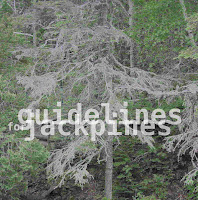The unpardonable
is there anyone here
unperturbed
by the inner ear?
The scriptures speak of an unforgivable sin. I heard a sermon about this passage today. I think I understand what this means--I hadn't thought much about it for a long time.
We often think of ourselves as having potential to become even better versions of ourselves. I think we realize we might also become worse, but mistakes are usually dealt with as a misstep which helps us understand how better to continue on the path we are on, which is more or less a good one. By continually fleshing out the basic narrative of self-improvement, we cope with the people we are. If I am content, it seems possible to say that it is because nothing is barring me from triangulating my sense of self from the relative position of the person I wish to be and the person I think I actually am.
There will only be a few cases where making a mistake has consequences which disallow this generic narrative. Those cases are the uncomfortable times when I am made aware of the fact that one of my selves makes another more desirable self impossible. But of course, my awareness of such a consequence is of absolutely no issue toward whether, by a certain state of being, I have forever lost the path toward some other state of being.
I think of a short story by Gogol, in which a starving artist, who had the makings of a true maestro, takes a job doing a portrait (which pays well). Eventually, after doing hundreds of portraits, and growing rich, he realizes with horror that he can no longer paint anything except portraits. Any other painting he tries simply comes out in the form of the useless backdrops that fill the canvas around portraits. So, he realizes that he had but one chance to be a master, one stage in life during which that path was open.
In the same way, one realizes that there is a way to kill the soul but still to walk around for years, alive. To be more specific, it is possible to become deaf and blind to the divine. What is chilling to me is that this might be a permanent deafness and blindess. Just like the portait painter, I may understand what the sound of the divine should be. I might understand how my hand would move so as to paint the masterpiece. What is wrong is that I can no longer see the painting that must be painted. Analogously, when I arrive at the sin against the spirit, I can no longer triangulate a reality (perhaps not even a sense of self) out of a better self and the self which was breathing just a moment ago.
What is strange is how many ways it can seem right or necessary to go about dismantling the connection to the divine.


0 Comments:
Post a Comment
<< Home